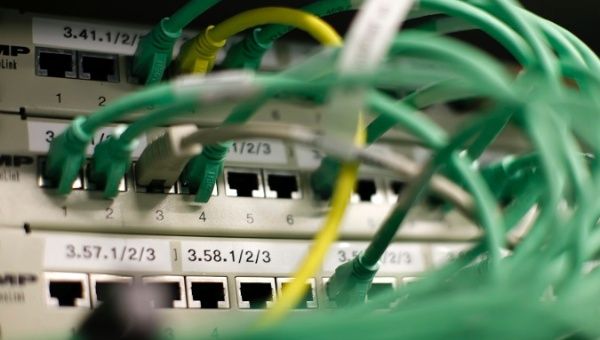Russia to Create ‘Independent Internet’ for BRICS Countries
BRICS, MEDIA, TECHNOLOGY, 4 Dec 2017
teleSUR – TRANSCEND Media Service
Russia plans to create an independent internet infrastructure to reduce vulnerability to attack.
29 Nov 2017 – The Russian Security Council has asked the Russian government to develop a separate infrastructure for BRICS countries’ internet needs while still being linked to the World Wide Web, which they claim will continue services in the event of a global internet infrastructure collapse.
RELATED: Facebook to Tell Users If They ‘Fell’ for Russian Propaganda
RBC News Agency reports that the plan already has a deadline set for August 1, 2018, which was personally decided by Russian President Vladimir Putin.
The initiative plans to create a separate ‘backup’ system of Domain Name Servers, DNS, that would be totally independent of international bodies and international infrastructure, yet still remaining linked to the global internet. This service would be used by BRICS countries: Brazil, Russia, India, China and South Africa.
Russia has previously performed successful security exercises to test its capabilities in being independent from the global DNS services in the event of a blackout or forced disconnect.
Officials believe that an over reliance on the international DNS system could make Russia vulnerable to foreign attacks or a total shut off of its internet services.
Members of Russia’s security council, the country’s top national security body, claimed that “the increased capabilities of western nations to conduct offensive operations in the informational space as well as the increased readiness to exercise these capabilities pose a serious threat to Russia’s security.”
Vladimir Putin’s Press Secretary Dmitry Peskov was asked by reporters about the possibility of a total disconnect from the global internet by Russia, which he dismissed outright.
“Russia’s disconnection from the global internet is of course out of the question,” Peskov told Interfax news agency. However, the official also said that “recently, a fair share of unpredictability is present in the actions of our partners both in the US and the EU, and we [Russia] must be prepared for any turn of events.”
“We all know who the chief administrator of the global internet is. And due to its volatility, we have to think about how to ensure our national security,” said Peskov referring to the United States. He noted that the intention of the Russian government is not to ‘unplug’ Russia from the global internet but “protecting it from possible external influence.”
RELATED: Algorithmic Censorship: Google News to ‘De-Rank’ RT, Sputnik
This would make BRICS countries totally independent from the DNS system and exempt from many international controls, giving control instead to individual governments.
Critics believe that this move is an effort for the Russian government to conceal its interference in foreign affairs, citing the 2016 U.S. presidential election, though no evidence suggests that the Russian government ordered any kind of hack to manipulate the outcome of the election.
The move also follows restrictions placed on U.S.-based Russian media outlets by the U.S. government and Russian threats of reciprocal restrictions on U.S. media operating with Russia.
httpv://www.youtube.com/watch?v=XoEEn38csE8
Go to Original – telesurtv.net
DISCLAIMER: The statements, views and opinions expressed in pieces republished here are solely those of the authors and do not necessarily represent those of TMS. In accordance with title 17 U.S.C. section 107, this material is distributed without profit to those who have expressed a prior interest in receiving the included information for research and educational purposes. TMS has no affiliation whatsoever with the originator of this article nor is TMS endorsed or sponsored by the originator. “GO TO ORIGINAL” links are provided as a convenience to our readers and allow for verification of authenticity. However, as originating pages are often updated by their originating host sites, the versions posted may not match the versions our readers view when clicking the “GO TO ORIGINAL” links. This site contains copyrighted material the use of which has not always been specifically authorized by the copyright owner. We are making such material available in our efforts to advance understanding of environmental, political, human rights, economic, democracy, scientific, and social justice issues, etc. We believe this constitutes a ‘fair use’ of any such copyrighted material as provided for in section 107 of the US Copyright Law. In accordance with Title 17 U.S.C. Section 107, the material on this site is distributed without profit to those who have expressed a prior interest in receiving the included information for research and educational purposes. For more information go to: http://www.law.cornell.edu/uscode/17/107.shtml. If you wish to use copyrighted material from this site for purposes of your own that go beyond ‘fair use’, you must obtain permission from the copyright owner.
Read more
Click here to go to the current weekly digest or pick another article:
BRICS:
- The “BRICS Sovereigns” vs the “Globalist Oligarchy”
- Cuba Joining BRICS Is a Lifeboat for Its Economy
- BRICS and G20 Value Platforms: A Comparative Analysis
MEDIA:
- The Media Navigator (2025)
- Zuckerberg and Musk Have Shown that Big Tech Doesn’t Care about Facts
- BBC Middle East Editor Collaborated with CIA, Mossad
TECHNOLOGY:
